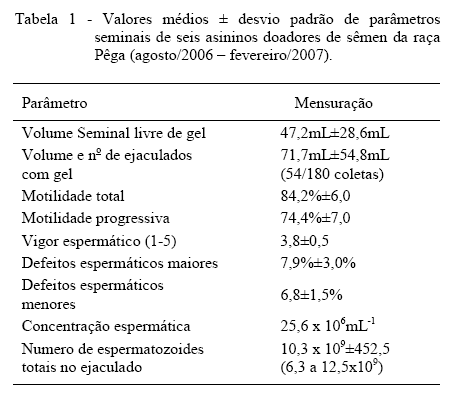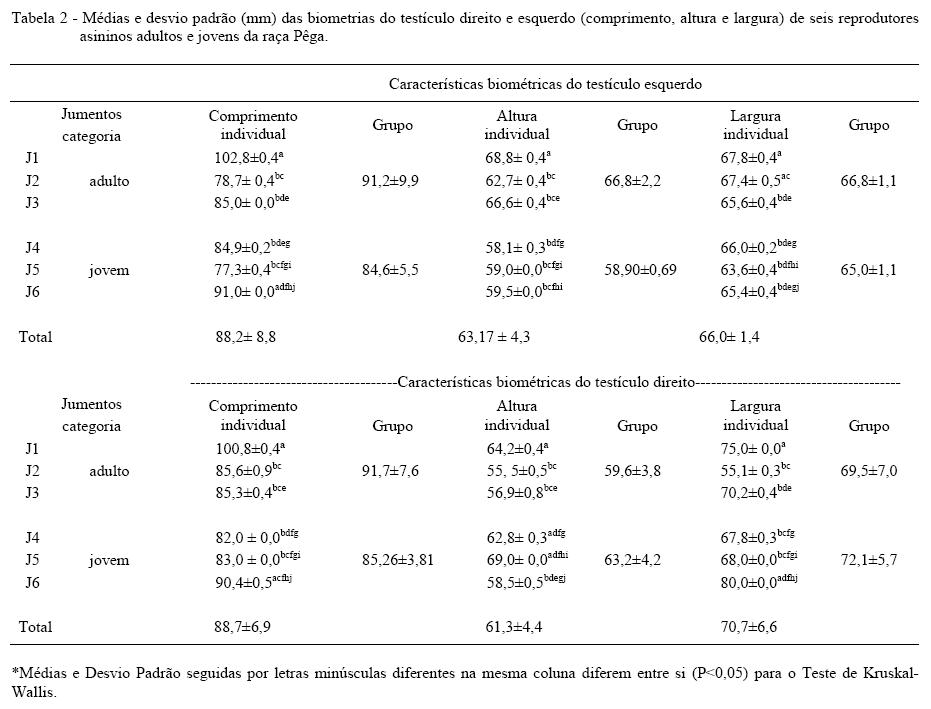The present study was performed with six Pêga breed donkeys, weight from 231 to 326kg (272±34.9). The breeders were divided into the adult group (J1, J2 e J3, 15 years old average) and the young group (J4, J5 e J6, 3.5 years old average). . The donkeys presented normal rates of fertility at natural mating. After breeding soundness evaluation all animals were considered capable for reproduction. A hundred eight semen collections were realized, and the donkeys presented normal seminal parameters for the specie. From August/2006 to February/2007, after semen collection each donkey was submitted to three or four measurements of the extern genital tract (both right and left side) for: testis length (LT - cranio caudal); testis height (TH - dorso ventral) and thickness of spermatic funiculum (FUN - third part). The biometric data from biometric testis were used to calculate the testis indices (TI) and testis volume (TV). The TI observed was 7.4 (5.9 a 9.6) and TV was 155.5±14.4, 149.3±14.9 respectively left and right. The average FUN was 25.3±3.3mm (20.3 a 30.8mm) to the right and 24.6±1.5mm (22 a 26mm) to the left side. The donkeys presented lesser TI than those proposed for the stallions, but the asinine were more efficient for sperm production than the average reported to stallions . The testis volume associated with IT can be used as an additional tool to estimate the normality of the breeder's testis. The measurement in vivo of spermatic funiculum can be used as a new component for the breeding soundness evaluation of donkeys. The genital extern tract biometric values can support routine breeding evaluation and can be applied to news studies.
biometric; volume; testicular indices




